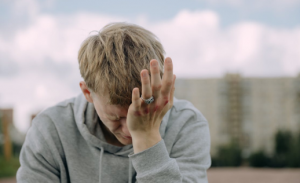Are you suffering from and need to know if misophonia can be cured? Are you having trouble tolerating certain sounds? Do sounds like pen tapping, chewing, and other little noises make you angry and violent? If so, you might be suffering from misophonia. Many people experience misophonia, but due to a lack of awareness, people fail to recognize it. Due to limited research, proper treatment is largely unavailable. Instead, an audiologist or behavioral cognitive specialist examines the condition and suggests measures to cope with the condition. In this article, you will learn about misophonia and how you can cope with this condition.

(Source)
What is Misophonia?
Misophonia is a term that originated from the Greek word “hatred of sound.” Previously, before 2000, people referred to this condition as selective sound sensitivity syndrome. Some suggest that Misophonia is a brain abnormality that exhibits physiological and psychological symptoms. Due to hypersensitivity towards the sound, patients show emotional or fight-or-flight responses. Consequently, the condition negatively influences the patient’s everyday life. It is essential to seek proper treatment. Inability to cope with this condition can lead to isolation, depression, and avoidance.
Misophonia Triggers
Each patient may have a different set of triggering sounds. Here are some common triggers for misophonia:
- Slurping
- Throat clearing
- Swallowing
- Pen-clicking
- Chewing
Other triggers are:
- Door slamming
- Sniffling
- Writing sounds
- Sounds of animals
- Paper rustling
For a person with misophonia, any sound can be a potential trigger. Many people are triggered by visual images as well. Visual triggers include:
- Nose rubbing
- Foot wagging
- Hair twirling
Causes of Misophonia
Researchers are still studying the actual mechanism behind misophonia, as there is currently little research on the matter. However, many experts assume some reasons for the occurrence of the condition. Here are a few causes for misophonia:
- Anxiety disorder
- Obsessive-compulsive disorder
- Tourette syndrome.
Many people reported that they initially developed tinnitus, which later developed into misophonia. Although tinnitus is a different condition, it may be the cause of misophonia. Experts suggest that this condition can be genetically transferred from one family member to another. Age factors can also trigger symptoms as a person’s auditory system grows weak as they age.

(Source)
How to Deal with Misophonia?
A professional treats misophonia with a multidisciplinary approach, including primary care audiology and psychology. When you visit the Misophonia Cognitive Center for treatment, our specialist can help rewire the auditory portion of the brain. Furthermore, they will calm the nervous system through prescriptive sound therapy. The ultimate goal of therapy in this condition is to neutralize triggering sounds. As a result, your brain won’t send a reflex response that causes anger, aggression, and emotional change.
Many people find these treatments effective in reducing the underlying damage to their auditory system. To prevent reaction due to a triggering sound, you need guidance from an experienced professional. They will examine your responses and suggest the best treatment methods to help manage this condition.
Below, we will understand these therapies and how they can help reduce symptoms:
1. Tinnitus Retraining Therapy
Tinnitus Retraining Therapy is an effective treatment that helps with tinnitus. Tinnitus is a condition referred to as ringing in the ear. It reduces the effect of triggering sounds by diverting the brain’s attention. This technique is also helpful with misophonia. It teaches the brain to tolerate noise, so the person with misophonia doesn’t react to the triggers.
2. Cognitive Behavioral Therapy
Cognitive Behavioral Therapy is an amazing therapy that changes the way your brain processes the triggering sound. This therapy removes the negative association of sounds and blends them with other therapeutic sounds, such as falling rain, birds chirping, and other sounds that are surely effective. An audiologist uses a device that plays rain and other soothing and calming sounds. About 85% of people who used these ear-level devices experienced relief in symptoms.
3. Counseling
Supportive counseling can also help in many conditions. In this technique, doctors discuss the patient’s condition with the entire family. Furthermore, the doctor also suggests appropriate techniques to prevent triggering sounds in the house. Currently, FDA doesn’t approve any medication for misophonia. Therefore, it is best to alleviate symptoms by opting for therapy with a professional audiologist.
Can Misophonia be Cured: Conclusion
Are you looking for an audiologist with experience with handling misophonia cases? Then you should schedule an online session immediately. At the Misophonia Cognitive Center™, our misophonia specialist has extensive experience in reducing, and in some cases curing symptoms of this difficult sound disorder.
Get in touch with us today to schedule an online session:
Misophonia Cognitive Center™
Stephen Geller Katz LCSW-R
646-585-2251
